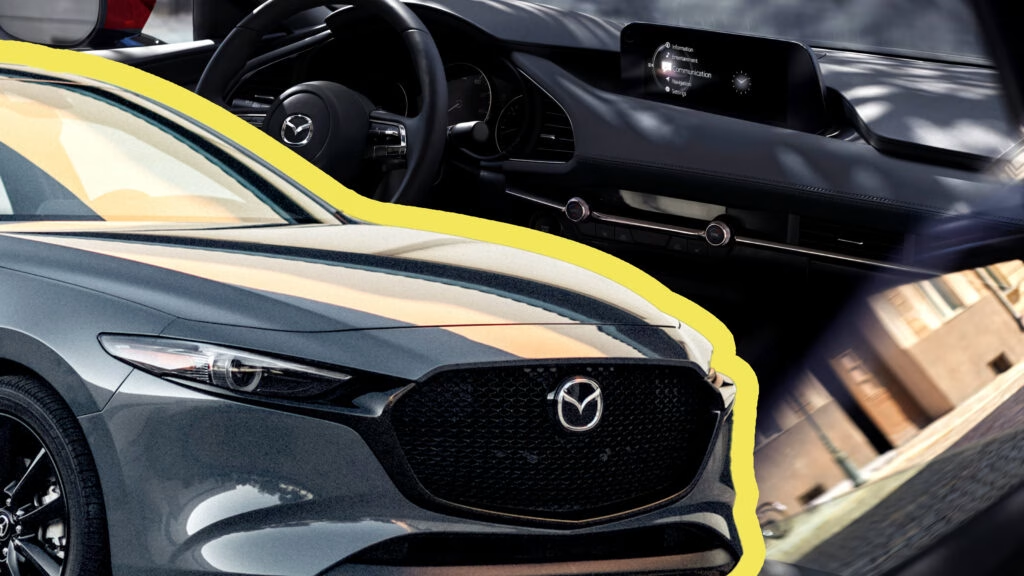How Did a Simple Window Sticker Spark a Lawsuit Against Mazda?
When you buy a new car, you trust that the details on the window sticker—the Monroney label—are accurate. After all, this federally mandated sticker is supposed to be your cheat sheet for everything from fuel economy to audio features. But for some 2025 Mazda3 buyers, that trust has been shaken. A class action lawsuit filed in Illinois claims Mazda misrepresented the audio systems in several of its popular models, and it all started with one owner’s sharp eye for detail.
What Exactly Was Wrong With the Mazda3’s Audio System Claims?
Here’s where things get interesting. Basic Mazda3 models are supposed to come with six speakers. However, some window stickers listed eight speakers and HD radio as standard—even though those features weren’t actually included in the cars. One owner, Kyle Johanson, thought he’d scored an upgraded audio system. But after poking around his car’s settings and taking a closer look at the rear, he realized two speakers were missing. No HD radio, either. Just the basic setup.
Johanson didn’t let it slide. He contacted Mazda, and a district sales manager reportedly admitted the error, chalking it up to a typo on the Monroney label. But that small mistake didn’t just annoy one customer. It opened the door for a lawsuit that could affect thousands of Mazda3 owners.
Which Mazda3 Models Are Involved in the Lawsuit?
The class action isn’t targeting every Mazda3 on the lot. Out of 13 different 2025 Mazda3 variations sold in the US, six are named in the complaint. These include:
– 2.5 S Sedan
– 2.5 S Hatchback
– 2.5 S Select Sport Sedan
– 2.5 S Select Sport Hatchback
– 2.5 S Preferred Sedan
– 2.5 S Preferred Hatchback
All of these are more basic trims, not the high-end versions with the premium Bose audio systems. The lawsuit alleges that Mazda hasn’t taken meaningful action to correct the record, aside from quietly acknowledging the error to individual customers.
Why Does a Small Audio Feature Matter So Much to Buyers?
It might sound trivial—two missing speakers and no HD radio. But for many car buyers, every feature counts. Audio upgrades are often a deciding factor, especially when you’re comparing models in a crowded market. According to a 2023 survey from J.D. Power, nearly 30% of new car buyers say the sound system is a key reason for choosing a specific vehicle. When a window sticker promises more than what’s delivered, it’s not just a minor oversight—it can affect the value of the car and the buyer’s satisfaction.
Johanson and other plaintiffs argue that they paid more than the cars were worth, or might not have bought them at all, if they’d known the truth. That’s the crux of the lawsuit: misleading information led to real financial harm.
What Are the Legal Stakes for Mazda and Its Customers?
The lawsuit seeks compensatory and punitive damages, plus a demand that Mazda return any profits earned through the use of inaccurate window stickers. If the court sides with the plaintiffs, Mazda could face significant financial penalties and be forced to update its labeling practices.
It’s not the first time a carmaker has faced legal trouble over misleading feature claims. In recent years, several automakers have settled similar cases, sometimes paying out millions to affected owners. The difference here? The error was right there in black and white, on a government-mandated label.
How Can Car Buyers Protect Themselves From Similar Mistakes?
This case is a wake-up call for anyone shopping for a new car. Don’t just take the window sticker at face value. Before signing on the dotted line, check that every listed feature is actually present in the vehicle. Ask the dealer to demonstrate the audio system, especially if you care about sound quality. If something seems off, get it in writing before you buy.
Consumer advocacy groups like the Center for Auto Safety recommend keeping copies of all sales documents and communicating in writing if you spot any discrepancies. If you discover a feature is missing after purchase, report it to the dealer and the automaker immediately. Sometimes, a simple fix or compensation can be arranged—if you act quickly.
What Does This Mean for Mazda Owners Going Forward?
For now, the lawsuit is still working its way through the courts. Mazda hasn’t issued a public recall or offered compensation to affected owners, but that could change depending on the outcome. If you own one of the listed Mazda3 models, keep an eye on official communications from Mazda and consider joining the class action if you’re eligible.
The big takeaway? Buying a car isn’t about perfection—it’s about smarter adjustments. Start with one change this week: double-check the features before you buy, and you’ll likely spot the difference by month’s end. Sometimes, it’s the little details that make all the difference.

